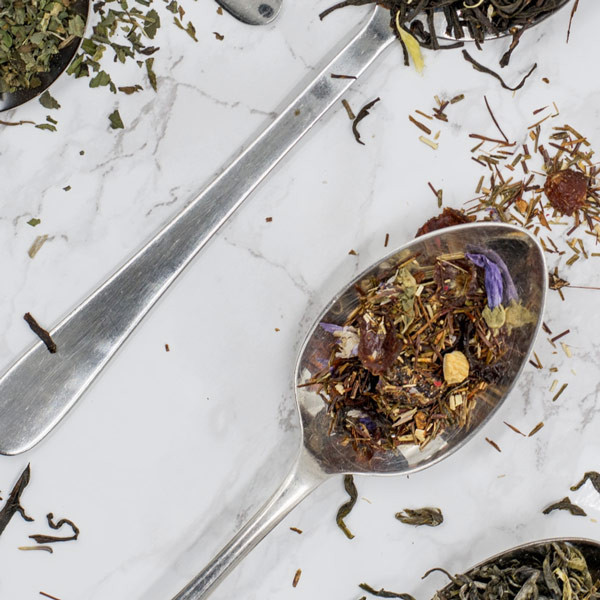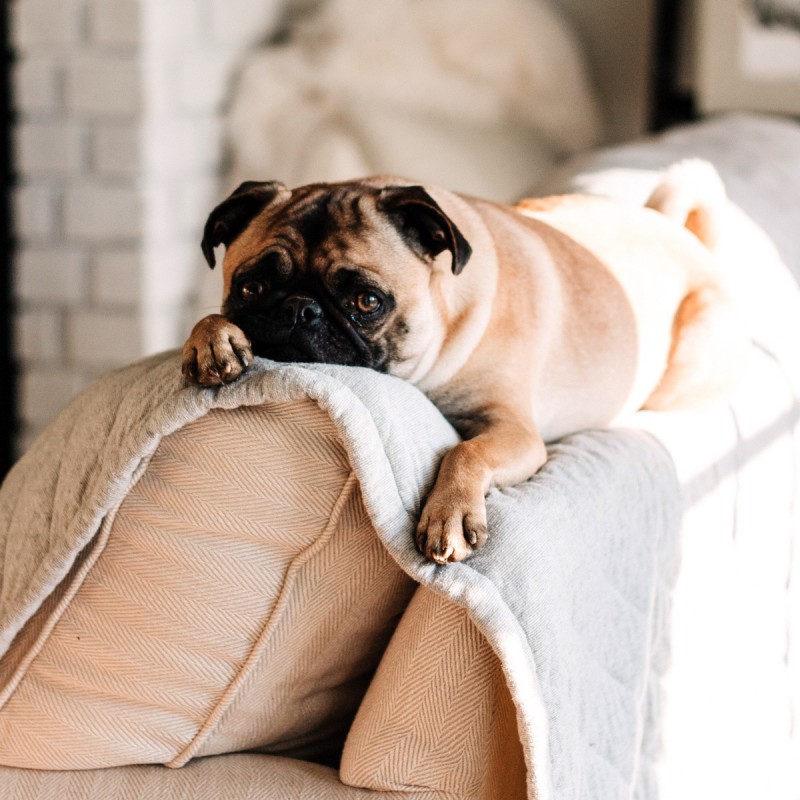Tsuno is such an inspiring company! Your sanitary products promote good health for the women and girls who use them, they're environmentally responsible, and profits contribute to empowering women and girls in underdeveloped countries. Can you share with us what inspired each of these principles when founding Tsuno?
Tsuno started when I got my period in Europe. It was the first time I had ever seen the ‘menstrual cup’ and thought it sounded amazing. It didn’t work as well as I had hoped, and it was a catalyst for me to start thinking about how and why so little had changed in the sanitary products available to women. I decided I could make something better, or maybe even completely different. Acknowledging the diverse needs of women is a priority to me, that is, I think there needs to be more sanitary options available. So, I started undertaking research and was shocked to find the amount of chemicals used in the manufacturing processes of many pads and tampons on the market, how much plastic is used, the pesticides sprayed over cotton and the chlorine used to bleach them.
How did you go about designing environmentally responsible sanitary products? What was the production process in the beginning?
I began the process by sourcing product from a manufacturer working with sustainable fibres; they make disposable sanitary pads with bamboo and corn fibre. Bamboo is an amazing material, it grows quickly and the harvesting process doesn’t erode the soil. It cuts like grass, so it keeps growing. Importantly, it is also naturally pest resistant, meaning no chemical fertilisers and pesticides are necessary for its growth.
I am always working with our manufacturers to make our products more sustainable. In 2017 we came up with a version that no longer required the polyethylene under layer (the leak proof part) and instead replaced it with a biodegradable corn-starch-based film. Our pads are also individually wrapped in a biodegradable plastic sleeve to keep them clean and packaged in a recyclable cardboard box, which reduces the plastic that will sit in landfill forever.
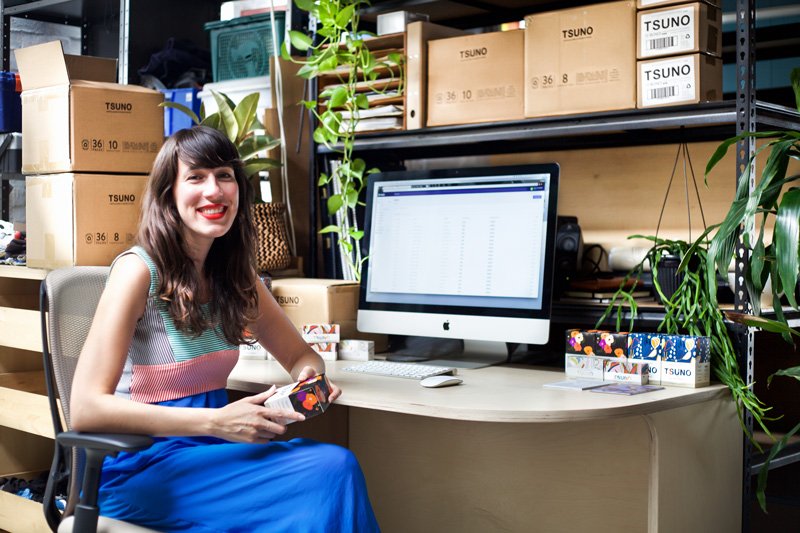
Tsuno is a social enterprise. What does this mean and what inspired you to found Tsuno in this way?
It basically means that the business exists for more than just profit; we've had a social and environmental mission tied into the business plan from the get-go. After learning about the issues facing many girls in the developing world around access to education, and adequate, hygienic sanitary products, I decided I wanted to create a business that would help fund the work of charities working to help in this field. Why shouldn’t we use business as force for good as well as profit? It is possible.
Where does the name Tsuno come from? Is there meaning behind it?
People often think our name is a derivative of the word Tsunami, which makes sense with the saying “riding the ‘crimson wave’”- a connection I only realised after locking it in! But Tsuno is actually named after a comic by a Belgian writer which follows the adventures of a woman called Yoko Tsuno – I think she is the epitome of a competent woman. She is an engineer, a pilot, a scuba diver amongst many other things – nothing really holds her back, especially not her period.
You work closely with One Girl, a charity who supports girls' rights to education. How did you learn about this company and what inspired you to become involved?
Around the same time, I started doing more research on sanitary items I heard about One Girl, an Australian-based charity that raises funds for scholarships to send girls in Sierra Leone to school. One Girl found that after sending their first group of girls to school many weren’t going consistently, and some missing up to a week of school because of their periods. Before learning this I had never really thought about what people do when they don’t have the money and resources to access sanitary products.
In 2013 I took part in One Girl’s yearly charity fundraising challenge and decided that during my period I would use the methods some women without access to affordable sanitary items have to resort to. Some of the items included rags, newspaper, kitchen sponges and leaves, I even considered bark. This experience compelled me to try and do something to help.
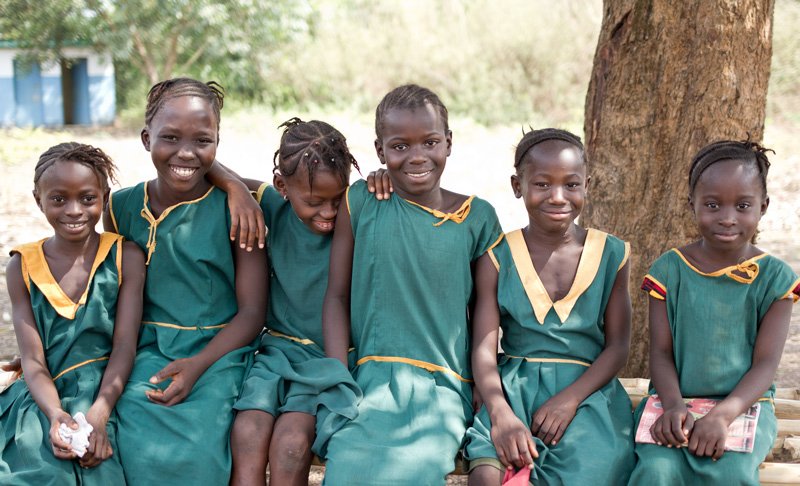
Tsuno donate an admirable 50% of profits to various charities empowering women. Can you tell us a bit more about what these charities do and why you chose them?
Currently, Tsuno donates 50% of our net profits to One Girl who run an amazing menstrual hygiene program called Launch Pad as well as their education scholarships program mentioned above.
After starting Tsuno I heard about the charities: Share the Dignity, Essentials for Women SA and the Asylum Seeker Resource Centre working locally with women experiencing homelessness and those seeking asylum in Australia. Again, this reminded me of the fact that I had never given too much thought to how it would be like as an asylum seeker arriving in Australia with nothing, a homeless woman in Australia, or fleeing domestic violence. Tsuno has donated more the 20,000 boxes of pads and tampons to these organisations and others through our website and from the generous public and matched donations from Tsuno.
You work with various independent artists, featuring their beautiful artwork on Tsuno packaging. Can you share with us a bit about where this idea came from and why you do it?
When looking on the shelves at other products out there I predominantly thought they looked very medical and bland, or very bright and plasticky! I decided that Tsuno sanitary pads and tampons needed to be presented in a way that would encourage people to feel unashamed of having them on the bathroom counter, on their dresser, or in their shopping basket. I have a dream that I will be selling enough product each month so I will be able to have a different artist featured every month, so each time someone purchases a box it will be a nice, different experience each time. I also come from a creative background, so visual aesthetics are important to me!
The government recently removed GST from sanitary products. How do you think this will positively impact women and girls in Australia?
Even though for many the price difference will not impact them that much, for some it will make a huge difference. It also sends the message to people who menstruate that our natural bodily functions are normal, and the effective, hygienic management of periods is a basic human right rather than a luxury.
How do you navigate running a business that's centred around what's (unfortunately) still considered a bit of a taboo topic in society?
In the beginning it was difficult, but I have noticed a shift in the general public, the media over the last four years. In the beginning many media outlets turned me away on covering stories about what we were doing. Since then, the tampon tax debate has received the media and political spotlight and I think that has helped a lot. I’m also thankfully not shy when it comes to being matter of fact, which I think certainly helps too!
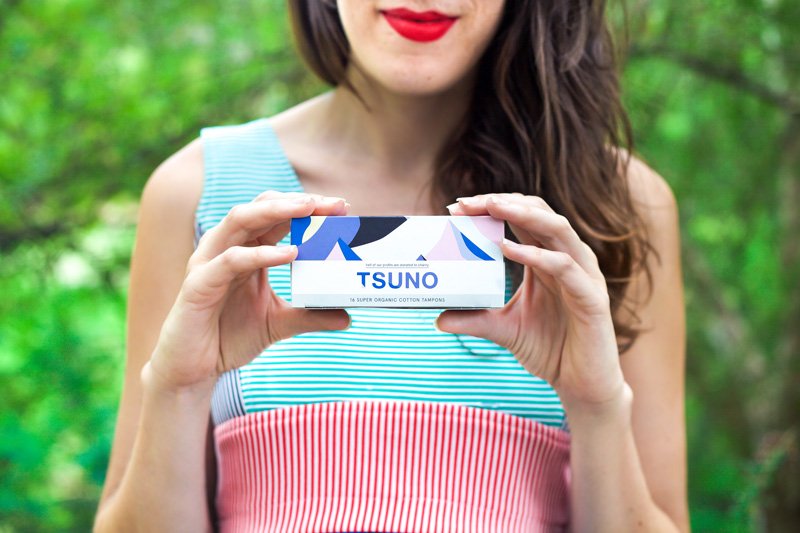
Do you have any major goals for Tsuno?
I would like to expand our product range to include more reusable products for managing periods, offering a solution for every person who has a period. I’d also like to reach more Australian women, and hence having a greater impact with the funds we can send to One Girl to support their work in Sierra Leone and Uganda. We are still such a small business; I would like Tsuno to grow sustainably over time to be one of the go-to, recognised brands for most Australian women and girls. A brand that people associate with good quality, environmentally-friendly products, with a great social conscience.

Love Health?
From recipes, trends and discounts, expect great things via email this month.
More Great Reads!
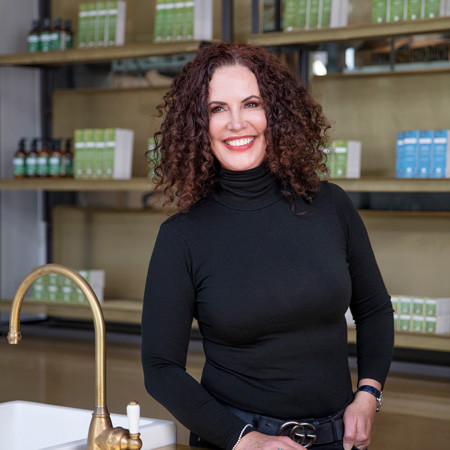
Behind The Brand: Antipodes
Recipes We Love!
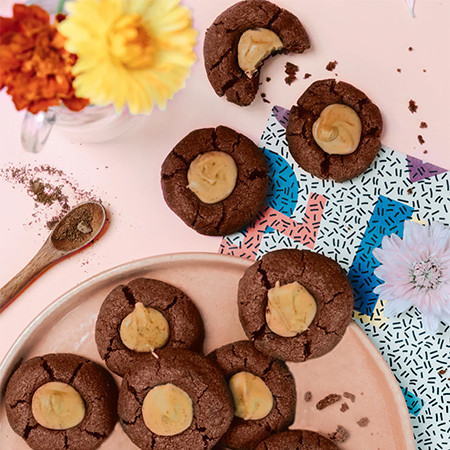
Clever Cookies







